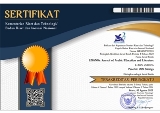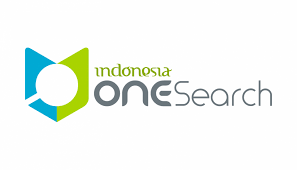- Focus and Scope
- Section Policies
- Peer Review Process
- Open Access Policy
- Archiving
- Publication Frequency
- Plagiarism Policy
Focus and Scope
Focus and Scope
LISANIA: Journal of Arabic Education and Literaturis a peer-reviewed journal on Arabic education and Arabic literarure in the world. This journal is published by the the Arabic Education Department, Faculty of Education and Teachers Training, State Institute for Islamic Studies (IAIN) Salatiga. Editors welcome scholars, researchers and practitioners of Arabic Education dan Arabic Literature to submit scholarly articles to be published through this journal. All articles will be reviewed by experts before accepted for publication. Each author is solely responsible for the content of published articles.
This journal encompasses original research articles, review articles, and short communications, including:
- Teaching Arabic as a Foreign Language
- Arabic Linguistic
- Arabic Literature
- Arabic History
- History of Arabic Education
- Strategy of Arabic Teaching
- Arabic Islamic Culture
- Media of Arabic Teaching
- Technology of Arabic Teaching
- Modern Standard Arabic
- Arabic Second Language Acquisition
- Arab Islamic History
Section Policies
Articles
Peer Review Process
Lisania is scientific, peer-reviewed and open access journal published by IAIN Salatiga in collaboration with IMLA. The manuscript will be sent to at least two anonymous referees for contribution, originality, relevance, and presentation (double-blind review). Reviewers' comments are then sent to the corresponding author for necessary actions and responses. The Editor shall inform you of the results of the review as soon as possible, hopefully in 30 to 60 days. The submitted manuscript is first reviewed by an editor. It will be evaluated in the office, whether it is suitable for the JPM focus and scope or has a major methodological flaw and similarity score.
All research articles published in LISANIA undergo full peer review, key characteristics of which are listed below:
- All research articles are reviewed by at least two suitably qualified experts.
- All publication decisions are made by the journals’ Editors-in-Chief on the basis of the reviews provided
- Members of the international Editorial Boards lend insight, advice and guidance to the Editors-in-Chief generally and to assist decision making on specific submissions
- Managing Editors and Editorial Assistants provide the administrative support that allows LISANIA to maintain the integrity of peer review while delivering rapid turnaround and maximum efficiency to authors, reviewers and editors alike.
- LISANIA additionally benefit through the manuscript referral process from the high quality peer review conducted by established journals.
Peer review of referred papers:
Editors of LISANIA will decide promptly whether to accept, reject, or request revisions of referred papers based on the reviews and editorial insight of the supporting journals. In addition, Editors will have the option of seeking additional reviews when needed. Authors will be advised when Editors decide further review is needed.
Peer review of novel submissions:
Articles submitted directly to LISANIA will be fully peer reviewed by at least two appropriately qualified experts in the field selected by the Editor-in-Chief. The Editor-in-Chief or a designated member of the Editorial Board will then decide whether to accept, reject or request revisions based on the reviews and comments received.
Editors will decide whether each submission reports well-conducted research with conclusions supported by the data presented in the paper. Assessments of priority will not be a factor in decision-making, but all papers must make an incremental or novel addition to the literature.
Open Access Policy
This journal provides immediate open access to its content on the principle that making research freely available to the public supports a greater global exchange of knowledge.
Archiving
This journal utilizes the LOCKSS system to create a distributed archiving system among participating libraries and permits those libraries to create permanent archives of the journal for purposes of preservation and restoration. More...
Publication Frequency
LISANIA: Journal of Arabic Education and Literature published twice a year since 2017 (June and December), in every issue contains 6 articles. So, in every volume this journal will publish 12 articles.







